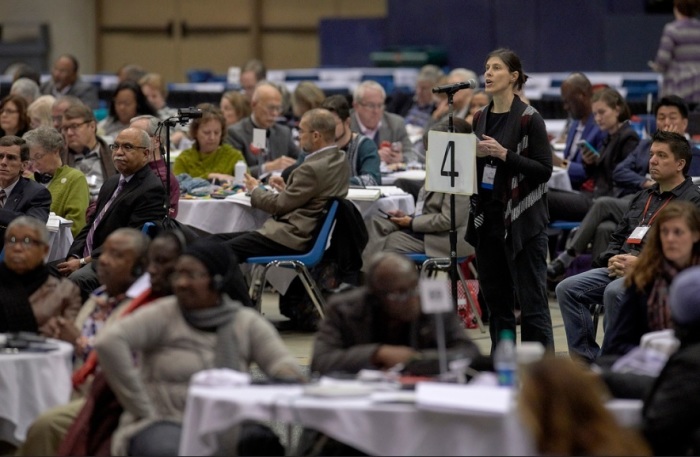Overseas UMC leaders felt alienation from US churches over traditional marriage support

United Methodist Church leaders from outside the United States said they feel dismissed by their brethren in the United States over their support for traditional sexual ethics.
Bishop Eduard Khegay, who is based in Eastern Europe, said he received emails from fellow UMC members who no longer want to financially support his Episcopal region after his delegate supported a plan earlier this year that opposes openly homosexual clergy and same-sex marriage.
“I find it kind of threatening,” explained Bishop Khegay at a meeting last month in Manila, Philippines, as reported by United Methodist News Service.
“The question my people ask: Are we a church that wants to support those in need even if they think a different way? Or do we only support those who think like us?”
At a special session of the UMC General Conference held in February, delegates voted 438-384 to uphold the mainline denomination’s official position against homosexuality and same-sex marriage.
Known as the Traditional Plan, the proposal not only upheld the current standards of the Book of Discipline but also included stricter enforcement of the rules and a possible gracious exit for congregations opposed to it.
Delegates representing overseas churches, especially Africa where the UMC is growing the fastest, played a crucial role in the vote result.
Those gathered in Manila talked about the backlash they have received from pro-LGBT churches in the United States.
Simon Mafunda from the East Zimbabwe Conference, who was a delegate at the special session in February, explained that many African members felt alienated by pro-LGBT UMC members.
“There is also a feeling they are being treated like perpetrators and another group of people are the victims for the simple act of exercising their right to support what they believe,” Mafunda explained.
Others, however, including Bishop Harald Rückert of Germany, spoke about the pain experienced by those in his region that opposed the Traditional Plan.
“When the decision was made on the last day, many of our people indicated to me — this is no longer my church. I lost a home in my beloved United Methodist Church,” stated Bishop Rückert.
“Not only because of the exclusiveness toward LGBTQ people but because this plan tries to implement a spirit of mistrust and punishment.”
The Manila meeting came about a month before the denomination’s highest court will convene to determine the constitutionality of the Traditional Plan.
The United Methodist Judicial Council will meet on April 23-26 in Evanston, Illinois, to hear challenges to the Traditional Plan. They are expected to release a decision within days of their meeting.
At issue are two items: the first being from Pastor Timothy Bruster of the Central Texas Annual Conference requesting that the Judicial Council review the “constitutionality, meaning, application, and effect of the adopted legislation referred to as the Traditional Plan.”
The second is from the UMC Council of Bishops, who submitted a request on March 6 for the Judicial Council to determine the constitutionality of Petition 90066, which changes the denomination’s policy on congregation disaffiliation.
Already, many pro-LGBT United Methodists in the United States and Europe have stated that they will refuse to enforce the Traditional Plan if it takes effect next year as scheduled.





























